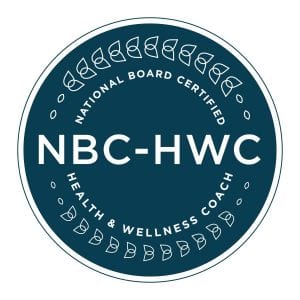Why in the Cell am I so Tired?!
 When we’re dragging, feeling tired, and experiencing low-energy, most people run to their magic blend – an extra cup (or two or three) of black coffee or what I call “loaded coffee” from your favorite coffee shop (which is worse). Coffee gives your body and brain a jolt, but it doesn’t help where help is needed most: in our cells. What is happening when we feel tired and have no energy?
When we’re dragging, feeling tired, and experiencing low-energy, most people run to their magic blend – an extra cup (or two or three) of black coffee or what I call “loaded coffee” from your favorite coffee shop (which is worse). Coffee gives your body and brain a jolt, but it doesn’t help where help is needed most: in our cells. What is happening when we feel tired and have no energy?
What we call “energy” is actually a molecule called adenosine triphosphate (ATP), produced by tiny cellular structures called mitochondria. ATP’s job is to store energy and then deliver that energy to cells in other parts of the body. However, (sadly) as we grow older, our body has fewer mitochondria. (I just turned 60, so I have an excuse and I’m sticking to it!) But in all seriousness, if you feel you don’t have enough energy, it may be because your body has problems producing enough ATP and thus providing cells with enough energy. We may not be able to overcome all aspects of age-related energy loss, but there are ways to help our body produce more ATP and replenish dwindling energy levels. The most common strategies revolve around three basic concepts: diet, exercise, and sleep.
Diet.
We must not underestimate the power of vegetables in boosting our body’s mitochondrial function and protect it from damage as we age. Boost your ATP with fatty acids and protein from lean protein like fatty fish (wild-caught salmon is best), nuts, chicken and turkey. While eating large amounts can feed our body more material for ATP, it also increases our risk for weight gain, which can lower energy levels. The excess pounds mean our body has to work harder to move, so we use up more ATP. It’s better to eat small meals and snacks every few hours than three large meals a day, just like I have taught my clients to do! Our brain has very few energy reserves of its own and needs a steady supply of nutrients. Remember our lesson on grazing? Large meals cause insulin levels to spike, which then drops blood sugar rapidly, causing the sensation of fatigue. That’s why after eating heavy, we feel like we need a nap!
Drink enough water.
If our body is short on fluids, one of the first signs is a feeling of fatigue. Although individual needs vary, the Institute of Medicine recommends men should aim for about 15 cups (3.7 liters) of fluids per day, and women about 12 cups (2.7 liters). You can get some fluids from liquid-heavy fruits and vegetables that are up to 90% water, such as cucumbers, zucchini, squash, strawberries, citrus fruit, and melons.
Stick to an exercise routine.
Exercise can boost energy levels by raising energy-promoting neurotransmitters in the brain, such as dopamine, norepinephrine, and serotonin, which is why we feel so good after a workout. Exercise also makes muscles stronger and more efficient, so they need less energy, and therefore conserve ATP. It doesn’t really matter what kind of exercise we do, but consistency is key. Some research has suggested that as little as 20 minutes of low-to-moderate aerobic activity, three days a week, can help sedentary people feel more energized. However, I believe 30 minutes 5 days a week should be our minimum. It has many benefits to every system in our bodies.
Get plenty of sleep.
Research suggests that healthy sleep can increase ATP levels. ATP levels surge in the initial hours of sleep, especially in key brain regions that are active during waking hours.
RX: Eat real food, drink clean water, exercise and get plenty of sleep.
Coach in your corner,
Stephanie Wolfe, NBC-HWC










Follow Me